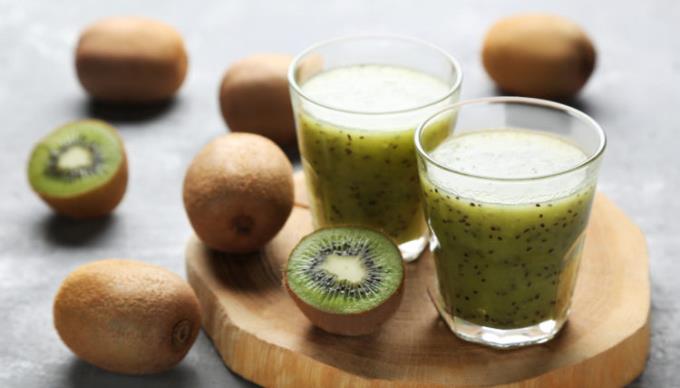Vitamin E is an essential compound found in sperm and eggs. In addition to protecting cell membranes against the damaging effects of free radicals, vitamin E's effects are shown by increasing fertility for both men and women.
If you're trying to conceive, a regular vitamin E supplement is essential because vitamin E acts as an antioxidant, helping to protect cell membranes from damage. In addition, this nutrient also helps to protect red blood cells and nerve cells, prevents mental disorders, anemia and viral infections. Many studies have proven that vitamin E works to improve immunity , preventing damage caused by free radicals.
Benefits of vitamin E for fertility
Vitamin E has many benefits for human health. This is a very powerful antioxidant, effective in preventing toxins such as lead, benzene, carbon tetrachloride, mercury ... In addition, this nutrient also helps balance hormones .
For men
1. Increase sperm motility
Sperm 's ability to move is one of the most important factors for conception because in order to reach an egg, the sperm must travel a certain distance. Vitamin E is a nutrient that can help improve this by preventing free radicals from affecting sperm motility.
2. Increase sperm count
One of the most common causes of infertility in men is low sperm count. Normally, 1ml of semen must contain about 20 million sperms to be considered good. A decrease in sperm count is often caused by infection and injury. Vitamin E acts as a protective barrier, helping to protect sperm from harmful factors.
3. Promote sexual desire
Research shows that eating more foods rich in vitamin E increases testosterone hormone levels in the body. When this hormone increases, you will have more sexual desire. In fact, the decrease in libido is also one of the most common causes of infertility to be aware of.
4. Increase the success rate of in vitro fertilization
Research shows that men who regularly eat foods rich in vitamin E have an increased success rate of 29% higher in in vitro fertilization compared to other men.

For women
1. Thickening the lining of the uterus
A thin uterine lining can be one of the factors leading to female infertility. Supplementing with about 600mg of vitamin E per day can increase blood flow to the arteries and increase the thickness of the uterine lining.
2. Treatment of cystic breast disease
Cystic fibrosis is a condition in which benign lumps develop in the breast during menstruation, often causing swelling and pain. Vitamin E can reduce these tumors.
3. Treatment of polycystic ovary syndrome (PCOS)
Polycystic ovary syndrome is a fairly common disease, with 1 out of 10 women getting it. This syndrome causes a hormonal imbalance and slows down the metabolic rate of the body.
4. Protect the amniotic sac
The amniotic sac is what protects and protects the fetus in the womb. In some cases, the amniotic sac can rupture. With this mineral, the amniotic sac will be thicker, thus preventing the possibility of rupture of the amniotic sac.
How much vitamin E should you take every day
Although vitamin E is good for reproductive health, if you take in too much, it can have negative effects on your body. You should only get between 500 and 1,000 mg per day. You should not take more than 1,000 mg per day because overuse can cause diarrhea, nausea, flu, and stomach upset. However, to be safe, before taking vitamin E supplements, you should still consult your doctor for advice and best advice.
What sources should you take vitamin E through?
The best sources of vitamin E are definitely the foods you eat every day. Make sure you're eating a well-balanced, healthy diet, free from the "bad" fats and toxins. In addition, you should eat a variety of foods rich in vitamin E to increase fertility:

Include dark green leafy vegetables in your diet because these vegetables are rich in vitamin E. Specifically, you should eat plenty of kale, cabbage and spinach.
Egg yolks, seafood, and poultry are very high in vitamin E foods.
Avocado has been shown to be one of the healthiest fruits. The avocado contains very little saturated fat and carbohydrates, but contains many nutrients that the body needs.
Tomatoes are rich in vitamins E, K, iron, folic acid and potassium, good for reproductive health.
Papaya can provide you with up to 17% of the vitamin E you need to get every day. So, what kind of fruit should you add to your diet?
European apricots are a fruit that is rich in vitamin E and fiber. In addition, this fruit also works to keep cholesterol levels at a stable level. Therefore, every night, before going to bed, you should try to eat one or two apricots.
Kiwi is famous for being very rich in vitamin C, but few people know that this fruit is also rich in vitamin E. Besides helping the body to strengthen immunity, kiwi also increases fertility.
Red bell peppers are also rich in antioxidants, vitamins E, C and iron. This fruit can help treat anemia. Red bell peppers will provide you with about 12% of the vitamin E you need to supplement each day.
Legumes are also a very rich source of vitamin E that you should incorporate into your food.
If your body is severely deficient in vitamin E, it may not be enough to get it through your daily diet. At this point, you may need to take vitamin E supplements. However, you should only take it after consulting your doctor.
Planning a pregnancy can be a big step for your small family. Sometimes, getting pregnant can be difficult for a few reasons. The first thing you should do is find out the main cause of this and how to fix it. Vitamin E is a natural solution that can increase fertility, but be sure to consult your doctor before taking it.













